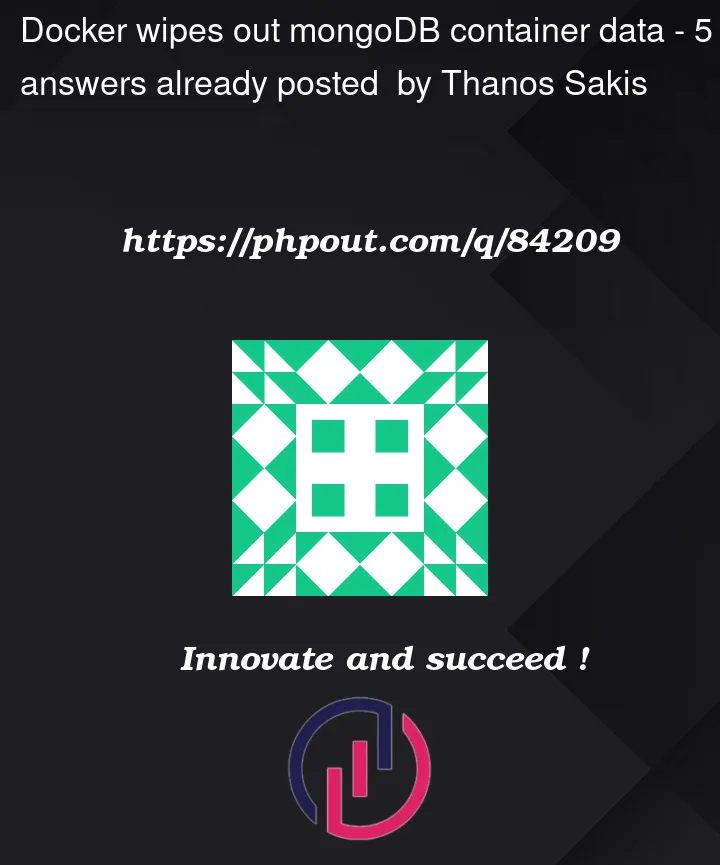I have created a program and tested that works just fine. I decided to dockerize it, and it seems after maybe some hours or few days the data of mongoDB container get all deleted. The docker-compose.yml file:
version: '3'
services:
node:
restart: always
build: ./nodeServer
container_name: nodeserver
ports:
- 5000:5000
depends_on:
- database
networks:
twitter_articles:
ipv4_address: 172.24.0.2
environment:
- TZ=Europe/Athens
database:
restart: always
build: ./mongoDump/database
container_name: mongodb
ports:
- 27017:27017
networks:
twitter_articles:
ipv4_address: 172.24.0.4
volumes:
- ./data:/data/db
environment:
- TZ=Europe/Athens
pythonscript:
restart: always
build: ./python
container_name: pythonscript
depends_on:
- database
networks:
twitter_articles:
ipv4_address: 172.24.0.3
environment:
- TZ=Europe/Athens
networks:
twitter_articles:
ipam:
config:
- subnet: 172.24.0.0/24
And the three Dockerfile’s that they are builded:
nodeserver:
FROM node:14.16.1
COPY package*.json ./
RUN npm install
COPY . ./
CMD [ "npm", "start"]
mongodb:
FROM mongo:5.0.3
CMD docker-entrypoint.sh mongod
pythonscript
FROM python:3.9
COPY requirements.txt ./
RUN pip install -r requirements.txt
COPY . ./
CMD [ "python", "-u", "./init2.py" ]
As mentioned before without Docker the app works just fine and there isn’t that kind of behaviour of database getting wiped out. I have tried also internal Docker storage which also does the same thing. I have tried to check the logs and I saw that there is an error happening in pythonscript container each time database wipes out. I know that an error should happen in pythonscript but there is no such a code anywhere in the app to perform deletion of collections or databases (also without Docker this error still happens but nothing gets deleted).
Any ideas?




5
Answers
You can create an external volume and add the data of the mongoDB into it. That way your data doesn’t get wiped even when you turn off your docker-compose.
now you have to create a volume in your docker using
then
docker-compose down
and
I have been advised that it is always better idea to save data outside of docker container in separate volume. Look for this tutorial volumes.
You need to make an persistant volume for your database, because as you noted on your docker-compose.yml file you got:
so everytime your python script got an error, it’s stopped and it’s depending on Mariadb, so it’s restarted and data got wiped.
Make sure the data is stored outside the docker container because are treated like cattles and not pets. New containers are created freshly with no data from previous version.
Referring to: